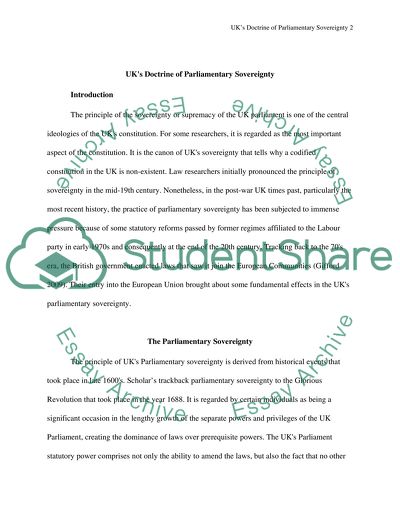Cite this document
(“How has UK joining the European Union impacted the doctrine of Essay - 1”, n.d.)
How has UK joining the European Union impacted the doctrine of Essay - 1. Retrieved from https://studentshare.org/law/1695421-how-has-uk-joining-the-european-union-impacted-the-doctrine-of-parliamentary-sovereignty
How has UK joining the European Union impacted the doctrine of Essay - 1. Retrieved from https://studentshare.org/law/1695421-how-has-uk-joining-the-european-union-impacted-the-doctrine-of-parliamentary-sovereignty
(How Has UK Joining the European Union Impacted the Doctrine of Essay - 1)
How Has UK Joining the European Union Impacted the Doctrine of Essay - 1. https://studentshare.org/law/1695421-how-has-uk-joining-the-european-union-impacted-the-doctrine-of-parliamentary-sovereignty.
How Has UK Joining the European Union Impacted the Doctrine of Essay - 1. https://studentshare.org/law/1695421-how-has-uk-joining-the-european-union-impacted-the-doctrine-of-parliamentary-sovereignty.
“How Has UK Joining the European Union Impacted the Doctrine of Essay - 1”, n.d. https://studentshare.org/law/1695421-how-has-uk-joining-the-european-union-impacted-the-doctrine-of-parliamentary-sovereignty.


